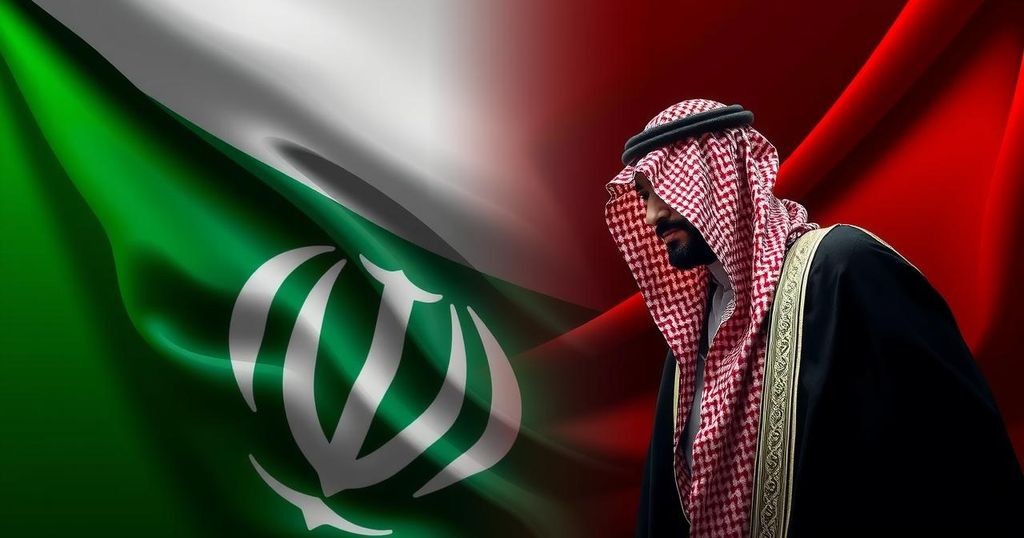Saudi Crown Prince Mohammed bin Salman is proactively seeking to bolster relations with Iran ahead of Donald Trump’s expected return to the White House. An attempt to increase trade aims to alleviate regional tensions and is backed by a recent rapprochement mediated by China. This initiative aligns with Saudi Arabia’s Vision 2030 economic strategy, highlighting the kingdom’s intention to promote diplomatic coexistence while diversifying its economy away from oil dependence.
Recent reports indicate that Saudi Crown Prince Mohammed bin Salman is keen on enhancing diplomatic and economic relations with Iran ahead of the anticipated return of former President Donald Trump to the White House. According to Bloomberg, bin Salman has made an offer to Iranian officials to increase trade, aiming to alleviate tensions with Western nations, particularly in light of Trump’s election win, which may herald a return to more aggressive policies against Iran.
This initiative builds upon a rapprochement facilitated by China in March 2023, which resulted in the resumption of diplomatic ties between Riyadh and Tehran following a seven-year hiatus. Although the specifics of the trade offer remain vague, initial discussions may focus on sectors such as food and medicine, ensuring compliance with existing sanctions imposed by the United States and Europe.
The urgent nature of these efforts stems from Crown Prince Mohammed’s strategic vision known as Vision 2030, which seeks to diversify Saudi Arabia’s economy and reduce its reliance on oil. As stated by Saudi Foreign Minister Prince Faisal bin Farhan, his primary goal is to protect this vision while fostering foreign investment to support ambitious development projects. The dual approach of cultivating relations with both the United States and Iran is deemed essential for maintaining geopolitical stability, despite potential complications.
Despite the optimism surrounding trade and investment pledges stemming from the Beijing Agreement, concerns persist among Iranian officials regarding the actualization of these commitments. Notably, Dina Esfandiary from the International Crisis Group emphasized that Riyadh’s actions serve as a straightforward demonstration of its dedication to dialogue with Tehran, especially in light of China’s significant influence as a principal oil buyer from both nations.
Recent meetings between representatives from Saudi Arabia, China, and Iran have reiterated commitments to the agreements established earlier this year, showcasing the progress made in facilitating mutual cooperation. The resurgence of Iranian pilgrims visiting Saudi holy sites and cultural exchanges further exemplifies the growing rapprochement between the two countries. Amid these developments, both nations have committed to respecting each other’s sovereignty and refraining from interfering in domestic affairs, as outlined in previous agreements.
The article discusses the evolving geopolitical landscape involving Saudi Arabia and Iran, particularly in the context of Saudi Crown Prince Mohammed bin Salman’s intention to strengthen ties with Iran in anticipation of changes in U.S. foreign policy following the election of Donald Trump. Furthermore, it highlights the implications of the 2023 Sino-Saudi rapprochement and focuses on economic collaboration, including potential trade agreements that aim to foster stability in a region often characterized by tension. The significance of these developments also relates to Saudi Arabia’s broader economic diversification agenda, known as Vision 2030, which aims to transform its economy away from oil dependency.
In summary, Saudi Crown Prince Mohammed bin Salman appears to be accelerating efforts to enhance ties with Iran, particularly in light of potential shifts in U.S. policy following Donald Trump’s election. The focus on trade and economic cooperation, particularly in the areas of food and medicine, represents a strategic move to reduce regional tensions and further support Saudi Arabia’s Vision 2030. The ongoing dialogue and commitments to mutual respect between Saudi Arabia and Iran reflect a significant diplomatic endeavor aimed at long-term stability in West Asia.
Original Source: www.presstv.ir






